What Soil to Use for your Garden?
Ever wonder what soil is best to use for your specific garden? That's what we're trying to find out as well! Here we show what the ideal soil for your plants unique needs.
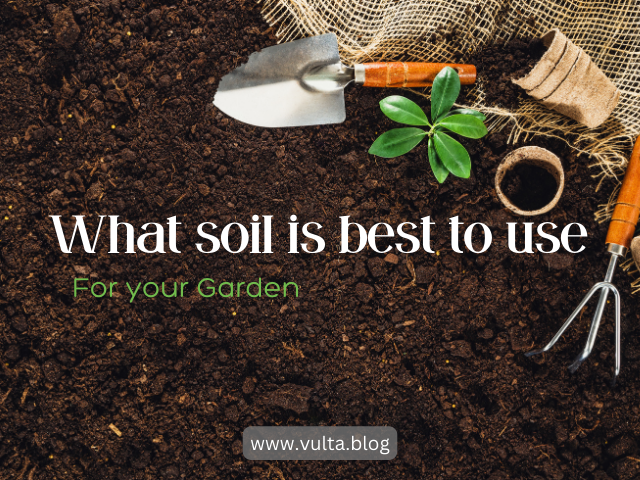
Does it matter what soil I use?
Yes, of course! The choice of soil is crucial for the success of your garden because different plants have different soil preferences.
What soil is best for my specific plant to grow?
That's what we are trying to figure out today! Continue reading on.
Interested in making a garden? This blog post might help you.
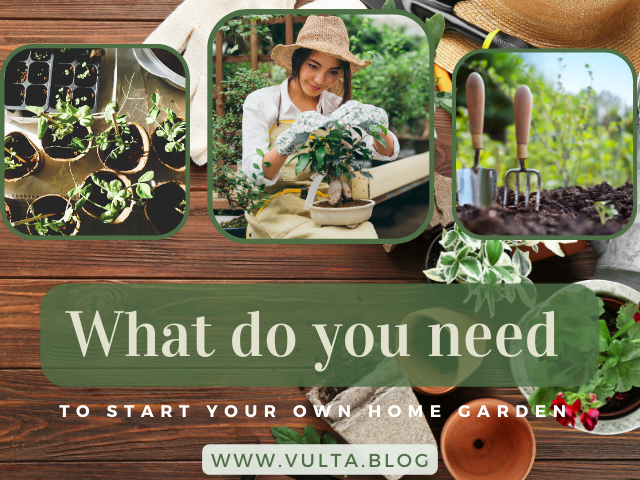
Potting Mix
Characteristics: A well-balanced mix of organic matter, perlite, vermiculite, and sometimes sand ensures good aeration, drainage, and moisture retention.
Potting Mix is good for Flowers, herbs, and vegetables. It is particularly well-suited for indoor plants that require a well-draining medium.
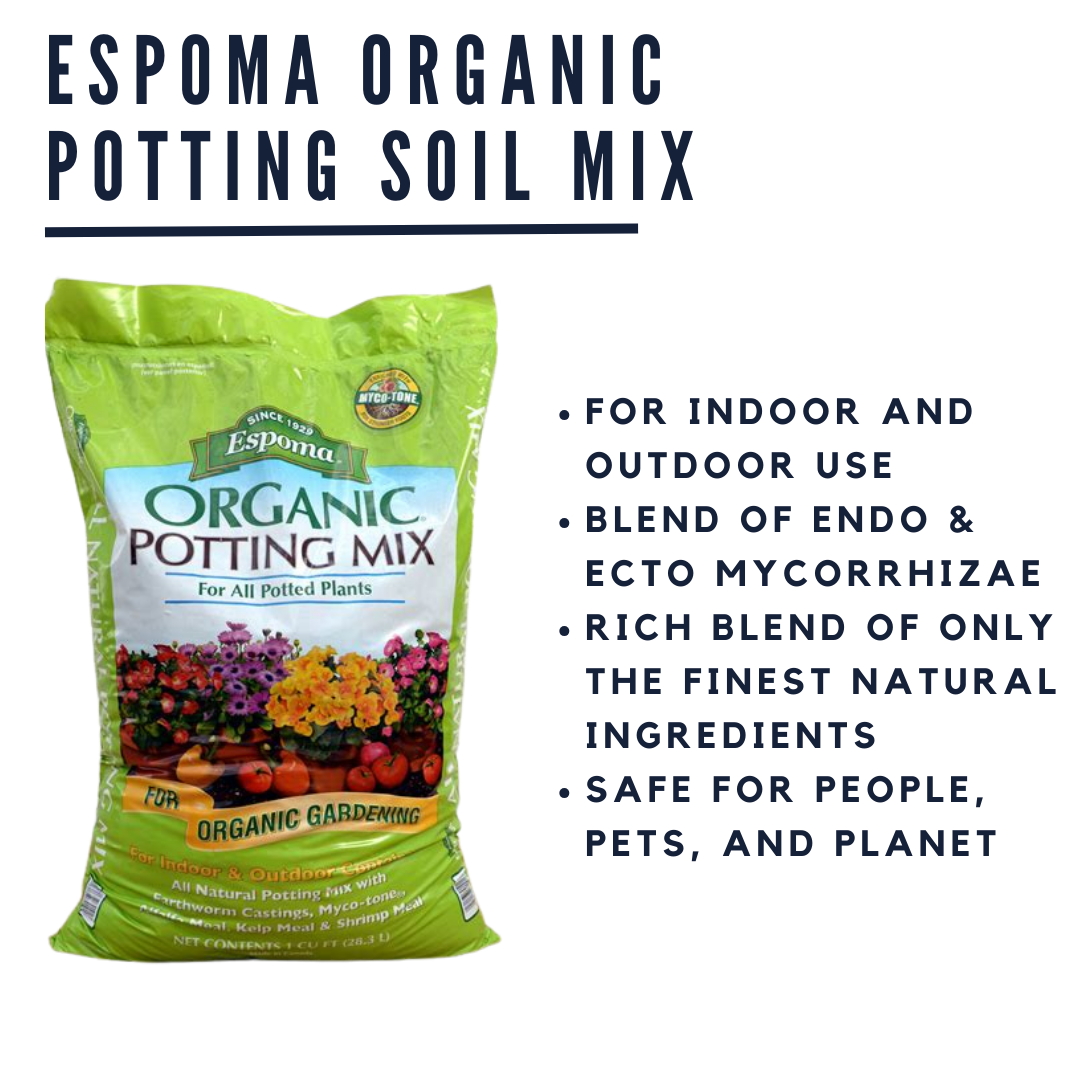
Espoma Organic Potting Soil Mix
All Natural Potting Mix For All Indoor & Outdoor Containers Including Herbs & Vegetables. For Organic Gardening, 2 Cubic Foot bag.
Seed Starting Mix
Characteristics: Lightweight with fine particles, promoting good aeration and drainage; often contains perlite or vermiculite for added moisture retention.
As the name suggest, the seed starting mix is best for seeds and starting seedlings. It ensures that delicate roots have access to necessary nutrients during the early stages of growth.
Cactus and Succulent Mix
Characteristics: A well-draining mix with a higher proportion of inorganic materials, including perlite, sand, or gritty components.
This mix is suitable for cacti and succulents that thrive in dry conditions and are prone to root rot in dense soils. It is ideal for plants that require excellent drainage.
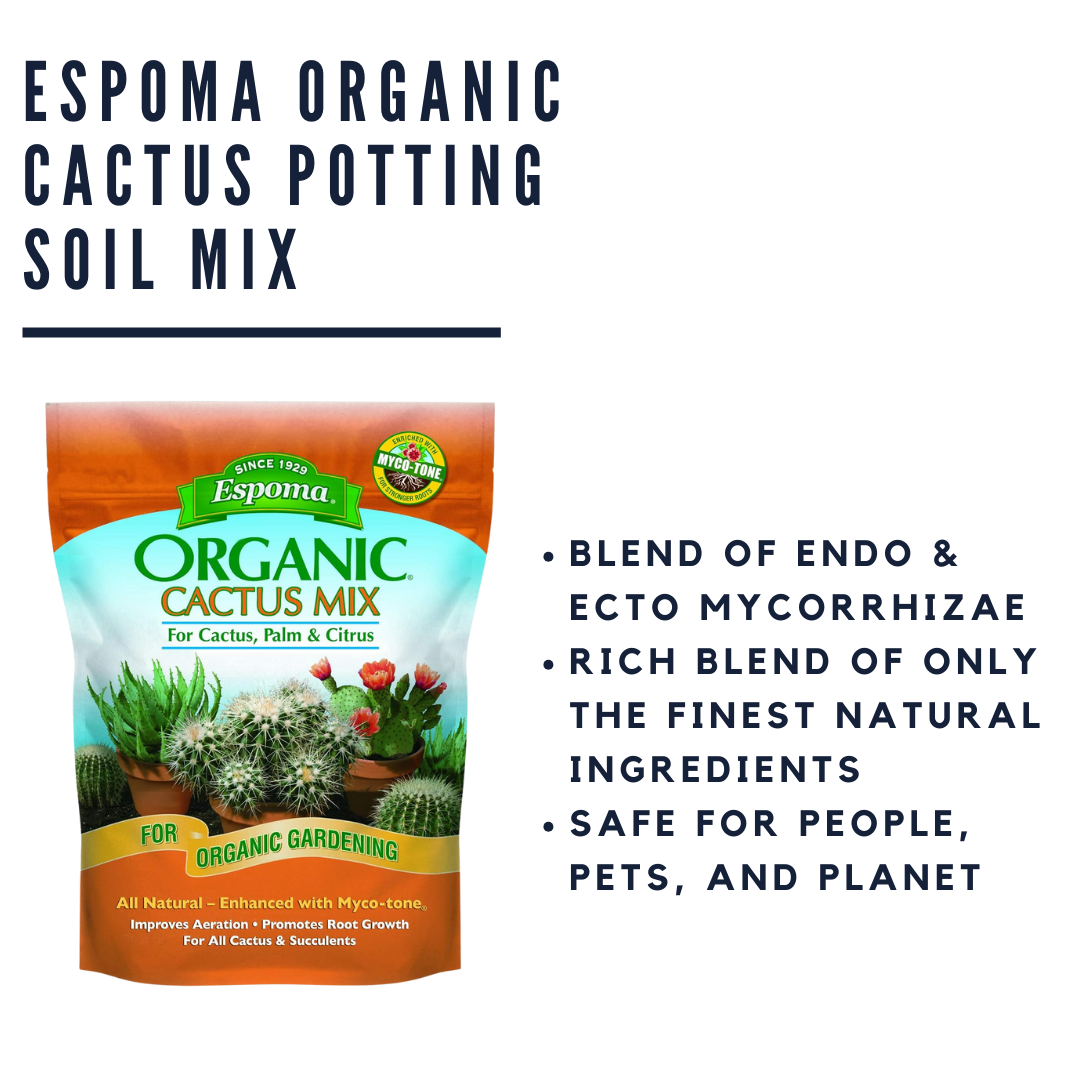
Espoma Organic Cactus Potting Soil Mix
Natural & Organic Soil for Cactus, Succulent, Palm, and Citrus Grown in containers Both Indoors and Outdoors, 8 qt, Pack of 1
Raised Bed Mix
Characteristics: A blend of topsoil, compost, and other amendments provides a nutrient-rich and well-draining environment.
This mix is ideal for filling raised beds for vegetable gardens and ornamental plants. It is also useful for improving soil structure in areas with poor native soil.
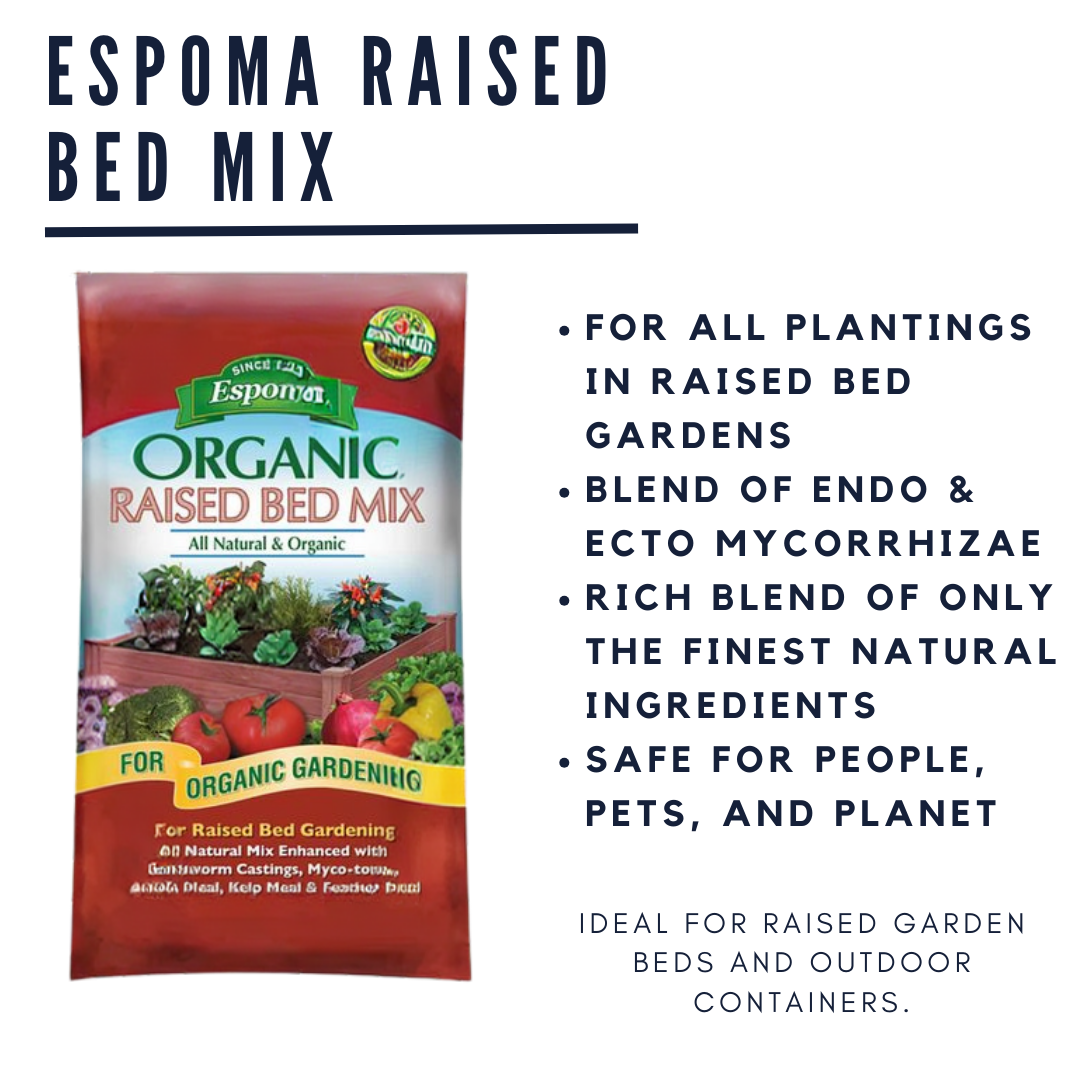
Espoma Raised Bed Mix
All Natural and Organic Potting Soil Mix for Growing Vegetables and Herbs in Raised Garden Beds. for Organic Gardening. 1.5 Cubic Foot Bag
African Violet Mix
Characteristics: A well-draining mix with a slightly acidic pH, often containing peat moss, perlite, and vermiculite.
This mix is suitable for plants that thrive in a slightly acidic and well-aerated environment like the African violets and other gesneriads.
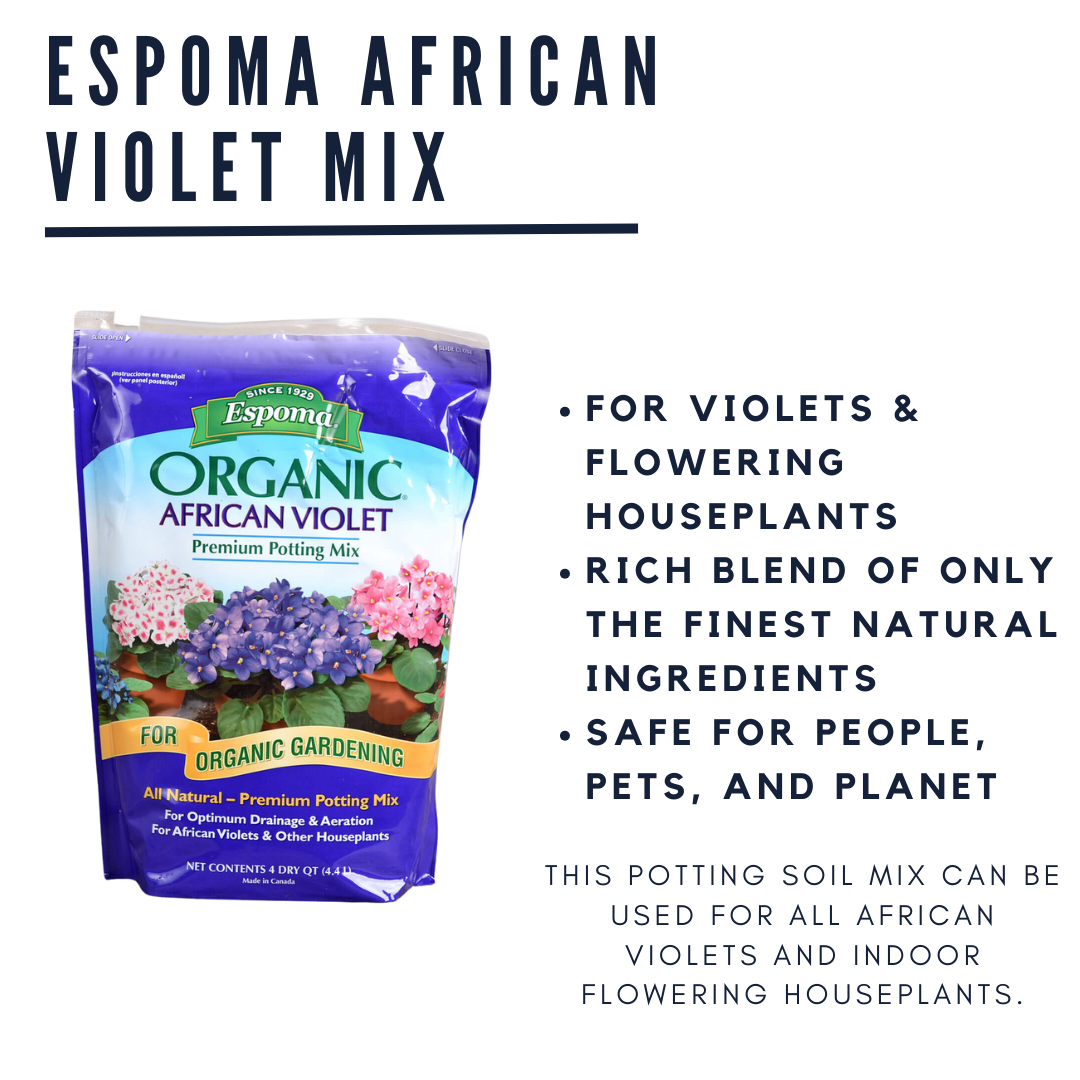
Espoma African Violet Mix
Natural and Organic Premium Potting Soil Mix for African Violets and All Indoor Flowering Houseplants. for Organic Gardening. 4 Quart Bag
Perlite-Enriched Soil
Characteristics: Perlite-enriched soil incorporates lightweight, expanded volcanic glass (perlite) to enhance aeration and drainage. It insulates the soil, preventing temperature extremes, and is sterile and free of weed seeds.
This type of soil is excellent for container gardening, improving soil structure and drainage. It is commonly used for starting seeds or rooting cuttings.
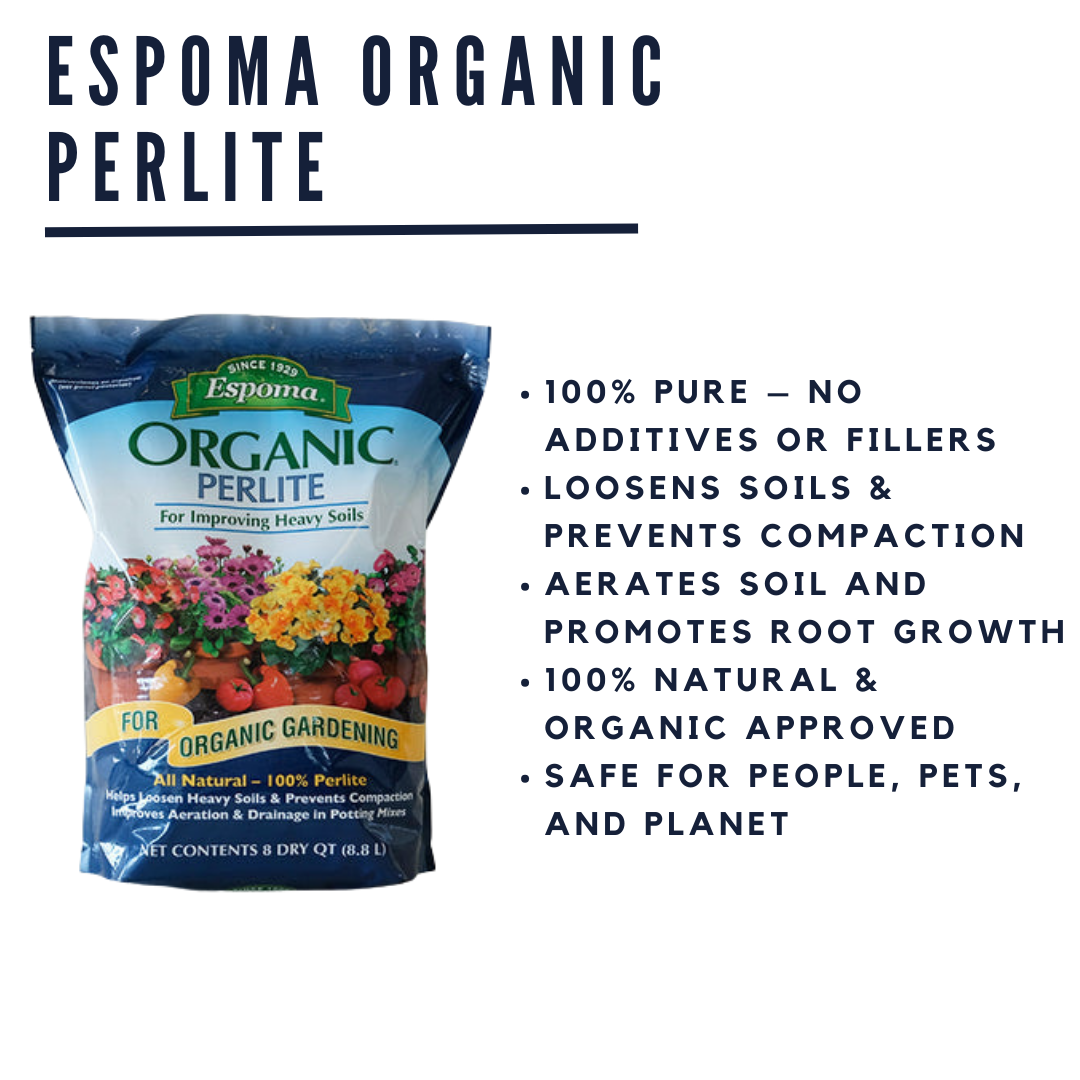
Espoma Organic Perlite
All Natural and Approved for Organic Gardening. Helps Loosen and Aerate Heavy Soils, Prevent Compaction & Promotes Root Growth – Pack of 1
THINGS TO KEEP IN MIND
Adding organic matter, such as compost, can also improve soil structure and drainage in various soil types.
For more information regarding that matter, refer to this blog post.
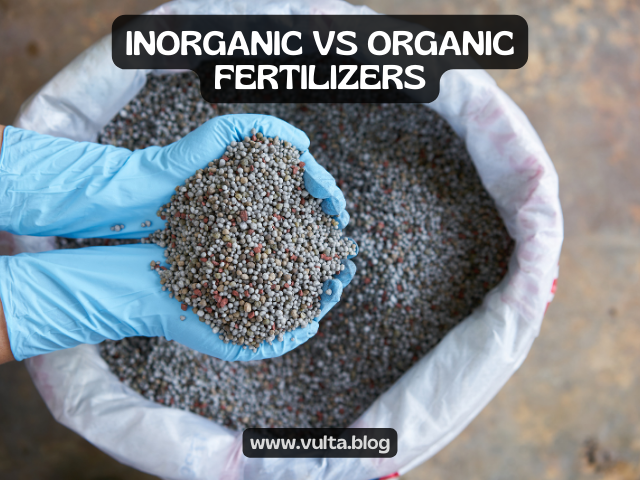
Copyright ©2023 by Marshall Vulta

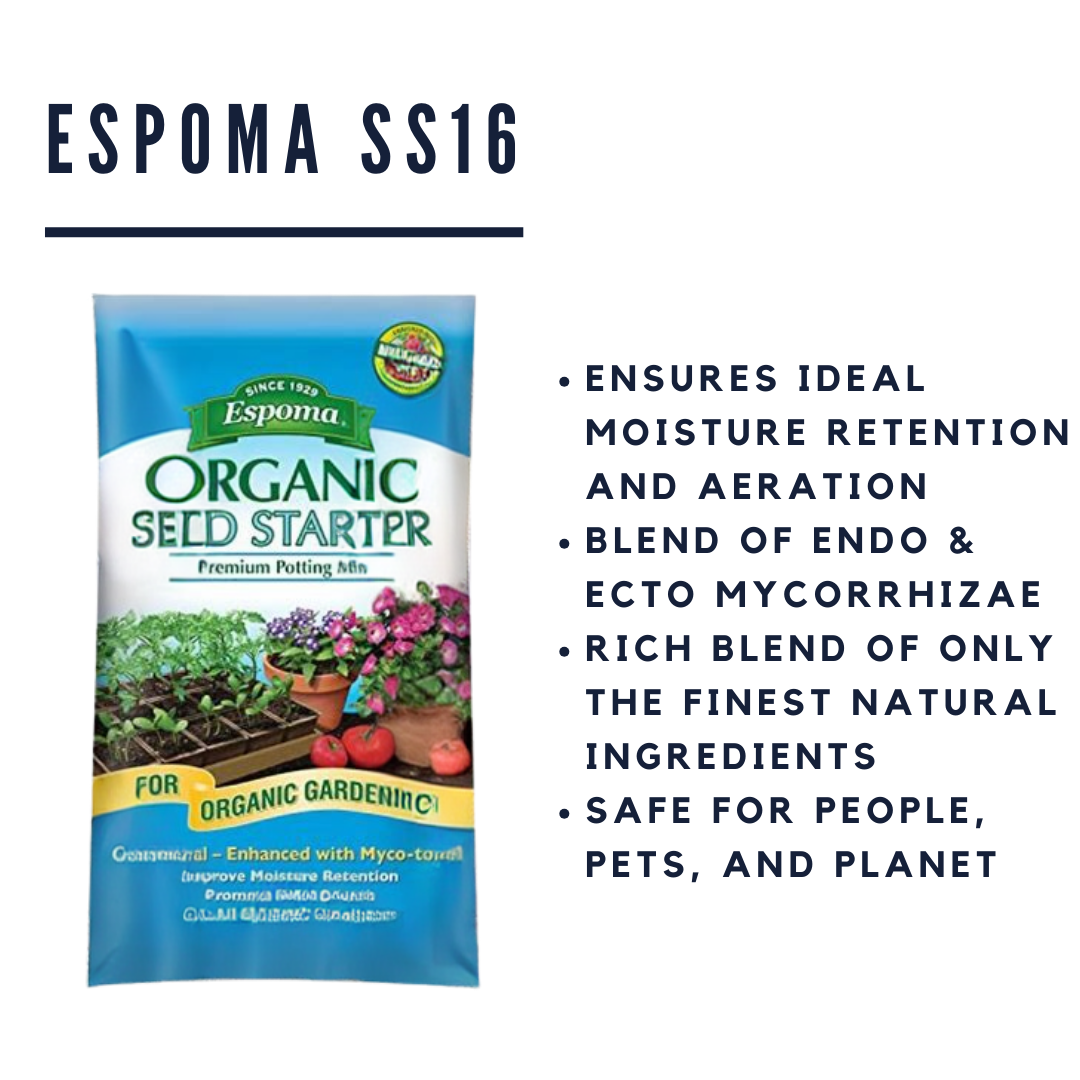




Comments ()